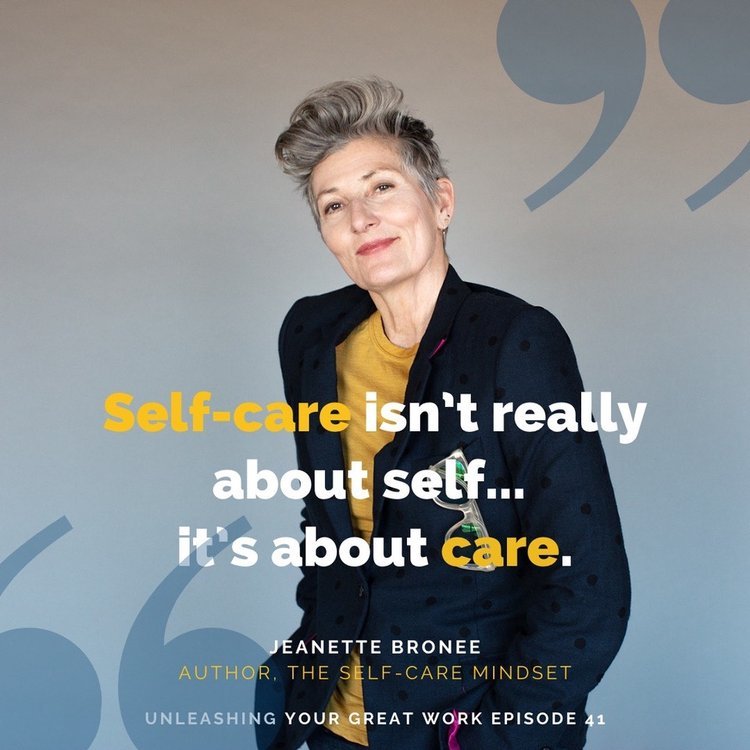WHAT IF GRATITUDE IS NOT ABOUT GIVING?
I grew up being taught that if someone did something nice, I had to do something nice back. It felt like it was the proper thing to do, almost a duty to give back and say thank you. Of course it is, but there’s more to it than mere actions.
The thing is, I didn't learn what it means to receive. I only learned what it means to give. My mom was a giver to the point of being an exhausted giver, and only in private would she share that she expected something in return.
This is where my personal challenge with gratitude begins. The practice of gratitude is that you must find something to be grateful for, even when it feels like everything is falling apart. You’ll have heard people say,
"I lost my job, but at least I still have the friends I made at work."
"The whole family is sick with the flu, but at least we are all sick at home together."
And yes, finding the positive in a situation is important to avoid feeling miserable. However, it can often feel like false positivity.
This is where the pothole approach comes in.
Instead of “but'ing” how we feel with a dash of gratitude, telling ourselves that how we feel isn't acceptable, we must 'yes and.' The science shows us that acknowledging our feelings is essential to moving on. It's the difference between the false positivity and truly changing your neurochemistry. Shifting your attention from the pothole of what's not working (which is full of the stress hormone cortisol) to what is working sends a surge of the good brain chemicals, such as serotonin and dopamine. Serotonin comes when you pause and acknowledge yourself for how you feel. Dopamine increases as you reclaim agency by asking yourself what you need so that you can.
But the gratitude effect doesn't stop there.
Gratitude that works is about connection.
Focusing on the positive has to be more than a mind exercise. Some argue that focusing on the positive, even if you don't feel positive about it, will start changing the brain chemistry. It’s why a gratitude journal is encouraged to establish the practice. From a hypnotherapeutic perspective, the unconscious mind is very, very smart. A false positive will not convince you that all is well, but opening your heart will.
The giving back that I learned as a kid is great because it creates a culture of respect. But for each of us to be changed by gratitude, we must learn to receive it, not just exchange it.
The first time I received gratitude at work was in the early 90s when my boss, Peter Arnell, wrote me a handwritten note saying, "I'm so honored to be working with you. Your dedication is an inspiration." I tried to find the note to make sure this is verbatim because I know I kept it, but the point is actually not what he wrote, it's what I heard, received, and remembered. I worked hard, and Peter was not an easy man to work for, but he saw me, acknowledged me, and showed me gratitude that I could receive. I cherished that note because I felt seen. It made me feel good enough.
To receive gratitude, we must open up our self-care mindset and work with our own ability to feel worthy. Feeling worthy is the essence of feeling valued; feeling valued is how we build connections and better relationships.
The key that unlocks the power and ripple-effect of gratitude is feeling seen and heard. When we say thank you to someone or say, I appreciate you did this for me, do we pause to connect so that it's not a ping-pong game of exchanging praise, but rather a value system of shared CARE?
For gratitude to work better for us, this Thanksgiving and beyond, please PAUSE to let it in.
When we practice this, being grateful becomes a mindset and part of who we are, just like self-care is not what we do, it’s a mindset and who we are too. Give it from a place of seeing someone. Receive it from a place of feeling acknowledged, valued and worthy.
Then we build true care and belonging, at home, and at work.
You can use Power-Pausing through-out the Thanksgiving Holiday and beyond.
When someone says something that might trigger you to react, pause for a moment to acknowledge how it makes you feel.
As you are pausing before responding, ask yourself, what about this makes you want to react?
What about this is important and how can you respond in a way that might cultivate a more constructive conversation?
Of course, sometimes POWER-PAUSING means we have to step away from a conversation.


